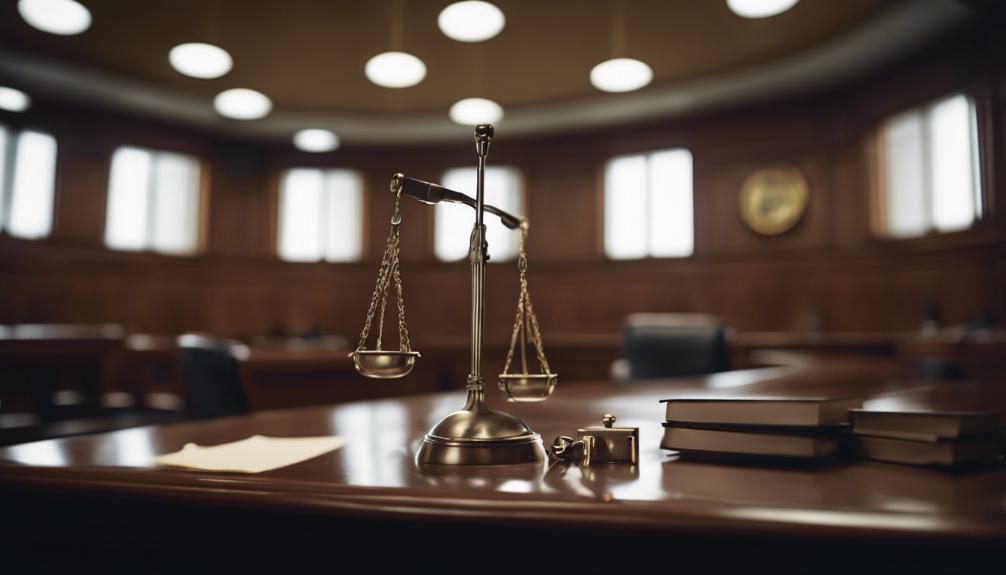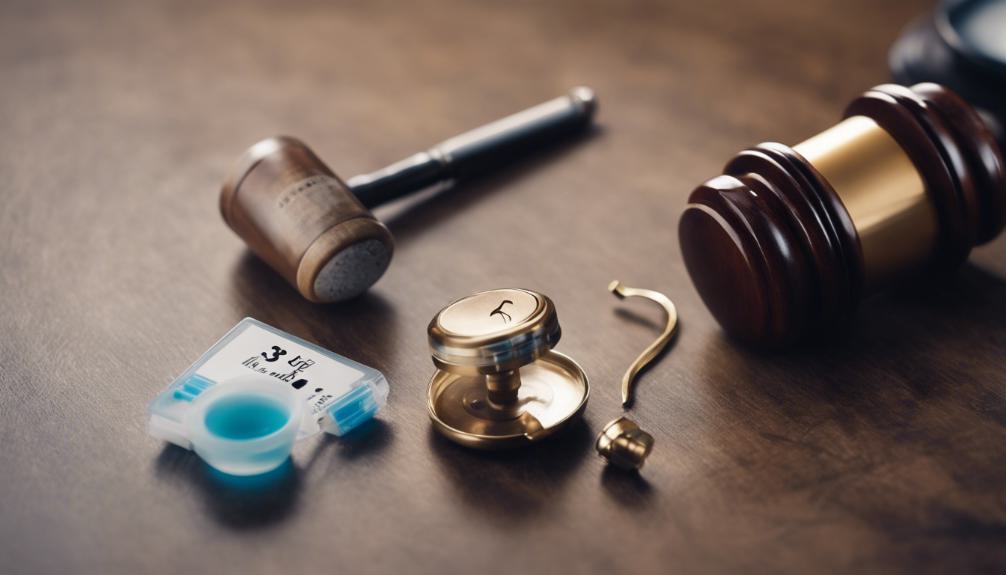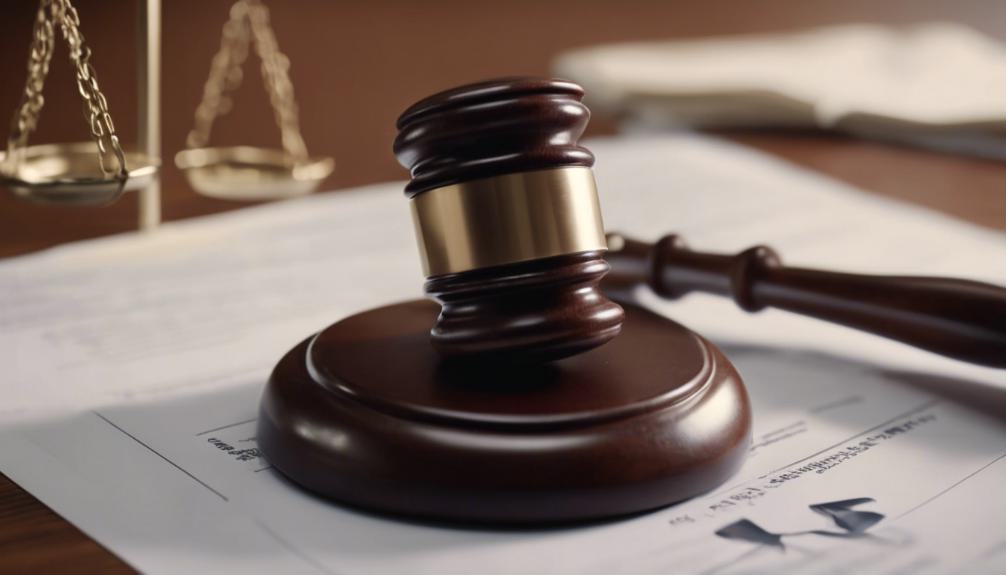Tepezza Lawsuits Surge Over Hearing Loss Claims
The burgeoning number of lawsuits against Horizon Therapeutics over its drug Tepezza underscores a pivotal moment in the domain of pharmaceutical litigation, particularly concerning patient safety. As patients report severe auditory side effects, including irreversible hearing loss, questions arise about the drug's approval process and Horizon's duty to inform. The consolidation of these cases into a multi-district litigation in Illinois not only streamlines the legal process but also magnifies the scrutiny on Horizon's practices and the broader implications for drug safety protocols. This situation invites a closer examination of the intersection between medical innovation and the ethical responsibility to safeguard patient well-being.
Key Takeaways
- Horizon Therapeutics is facing 54 lawsuits for not disclosing Tepezza's risk of permanent hearing loss.
- Research post-FDA approval indicates a higher incidence of hearing damage among Tepezza users.
- Victims of Tepezza-induced hearing loss are seeking compensation through multi-district litigation in Illinois.
- Legal actions highlight Horizon's alleged failure to adequately test and warn about Tepezza's side effects.
Background on Tepezza Lawsuits

The surge in Tepezza-related lawsuits, numbering 54, stems from Horizon Therapeutics' alleged failure to warn patients about the risk of permanent hearing loss associated with its use for treating Thyroid Eye Disease. This development raises significant concerns for healthcare professionals and patients alike, who rely on thorough and accurate information to make informed decisions regarding treatment options. The core of these legal challenges highlights a potential gap in the duty of care owed to those seeking relief from debilitating conditions. It underscores the importance of transparency and vigilance in monitoring the side effects of pharmaceuticals, particularly those with life-altering consequences. For individuals dedicated to serving and advocating for the well-being of others, this situation serves as a critical reminder of the ethical obligations inherent in patient care and pharmaceutical practices.
Allegations of Misconduct

Numerous allegations of misconduct have surfaced, accusing Horizon Therapeutics of inadequately testing Tepezza before its FDA approval and overstating the drug's efficacy to potential beneficiaries. These accusations underscore a significant concern for healthcare professionals and patients alike, emphasizing the imperative need for pharmaceutical companies to conduct thorough and transparent testing of their products. The reported side effects, including permanent hearing loss, raise questions about the diligence exercised in the pre-approval phase and the veracity of claims made regarding the treatment's benefits. For individuals dedicated to serving and aiding others, especially within the healthcare sector, these allegations highlight the importance of advocating for rigorous testing protocols and complete disclosure of potential adverse effects to safeguard patient health and trust.
Legal Proceedings Overview

Initiating with the consolidation into multi-district litigation (MDL) in Illinois, the legal proceedings against Horizon Therapeutics mark a critical phase in addressing the claims of permanent hearing loss associated with Tepezza. This pivotal move streamlines the process, allowing for a more efficient handling of the numerous lawsuits alleging that Horizon failed to adequately warn patients about the risk of hearing damage. By centralizing these cases, the court aims to foster a uniform discovery process and establish consistent legal precedents. The selection of bellwether cases is a critical step in this process, setting the stage for potential outcomes in subsequent trials. This organized approach underscores a commitment to justice for those alleging harm, ensuring their claims are heard and adjudicated with due diligence.
Compensation Opportunities

Victims of permanent hearing loss due to Tepezza treatment may explore various avenues for financial restitution. This opportunity arises as legal avenues open for those affected by the drug's side effects, particularly hearing damage. Individuals who have suffered such adverse effects are encouraged to seek legal counsel to understand their rights and potential for compensation. The lawsuits allege Horizon Therapeutics failed to adequately warn patients and healthcare providers about the risk of permanent hearing loss, offering a basis for financial claims. Compensation could cover medical expenses, lost wages, and other damages related to the hearing loss. This recourse is especially pertinent for those dedicated to aiding others, as it highlights the importance of accountability and the pursuit of justice for the harm endured.
Managing Multidistrict Litigation

The consolidation of Tepezza lawsuits into a multidistrict litigation (MDL) in Illinois serves to streamline the legal process, ensuring a more efficient management of cases with similar allegations against Horizon Therapeutics. This strategic organization allows for collective progress in addressing the grievances of those affected by Tepezza's side effects, specifically permanent hearing loss. By centralizing these lawsuits, the legal system aims to foster a unified approach to discovery, pretrial rulings, and potentially settlements, thereby reducing redundancy and conserving resources. This method respects the individual experiences of plaintiffs while working towards a common goal of accountability and justice. For those seeking to serve and support others, understanding this process highlights the importance of structured legal mechanisms in facilitating relief and restitution for aggrieved parties.
Frequently Asked Questions
How Does Tepezza Cause Hearing Loss?** - While the Article Sections Focus on the Legal Aspects and Allegations, Readers Might Be Curious About the Medical or Physiological Mechanisms by Which Tepezza Leads to Hearing Damage, Such as Whether It Affects the Inner Ear Directly, Alters Nerve Function, or Has an Inflammatory Effect.
Understanding the mechanisms by which Tepezza induces hearing loss is important for healthcare professionals aiming to serve their patients effectively. While the specific physiological pathways are under investigation, it is hypothesized that Tepezza may lead to hearing damage through direct effects on the inner ear, alterations in nerve function, or through an inflammatory response. This knowledge is essential for medical practitioners to advise patients accurately and manage potential side effects proactively.
Are There Any Preventive Measures That Can Be Taken to Reduce the Risk of Hearing Loss While Undergoing Tepezza Treatment?** - This Question Seeks Practical Advice for Patients Currently Considering or Undergoing Tepezza Treatment, Focusing on Whether There Are Any Known Interventions, Monitoring Strategies, or Modifications in Treatment Protocols That Could Potentially Mitigate the Risk of Hearing Impairment.
To mitigate the risk of hearing loss during Tepezza treatment, it's pivotal that patients and healthcare providers prioritize regular auditory monitoring. Research indicates that a significant percentage of Tepezza users may experience hearing-related side effects, underscoring the need for vigilance. Proactive measures, such as baseline and periodic hearing assessments, can be instrumental in early detection and management of potential hearing impairment, serving the well-being of those undergoing treatment for Thyroid Eye Disease.
What Are the Long-Term Outcomes for Patients Who Have Experienced Hearing Loss Due to Tepezza?** - Interested Readers Might Wish to Know More About the Prognosis and Quality of Life for Individuals Who Have Suffered Hearing Damage After Tepezza Treatment, Including Any Available Treatments or Therapies to Address the Hearing Loss and Whether Any Patients Have Reported Improvement Over Time.
The long-term outcomes for patients who have experienced hearing loss due to Tepezza vary, with prognosis and quality of life being contingent upon the severity of the hearing damage. Available treatments or therapies may offer some relief or stabilization, but improvement over time remains uncertain. Patients are encouraged to seek specialized medical consultation to explore all possible avenues for managing their condition and enhancing their overall well-being.
How Are Other Countries Responding to the Hearing Loss Claims Associated With Tepezza?** - This Question Expands the Scope of the Discussion Internationally, Inquiring Whether Regulatory Bodies in Other Countries Are Taking
The response to the hearing loss claims associated with Tepezza is varied internationally, as regulatory bodies in different countries assess the situation based on local medical guidelines and the prevalence of reported cases. Some countries might initiate their investigations, update prescribing information, or issue warnings to healthcare professionals and patients. The measures taken reflect each country's commitment to patient safety and the regulatory framework governing pharmaceutical product oversight.
Conclusion
Crucial, the escalation of legal actions surrounding Tepezza underscores a pivotal moment in pharmaceutical jurisprudence. It reflects a complex interplay between innovation and the safeguarding of patient well-being. The multidistrict litigation serves not only as a conduit for redress but also as a critical reminder of the imperative for rigorous scrutiny and transparency in drug development. This saga may ultimately catalyze a more conscientious approach to therapeutic advancement, ensuring that the zeal for medical breakthroughs does not eclipse the paramount importance of patient safety.

This post has been generated by AI and was not reviewed by editors. This is Not legal advice. Please consult with an attorney.
